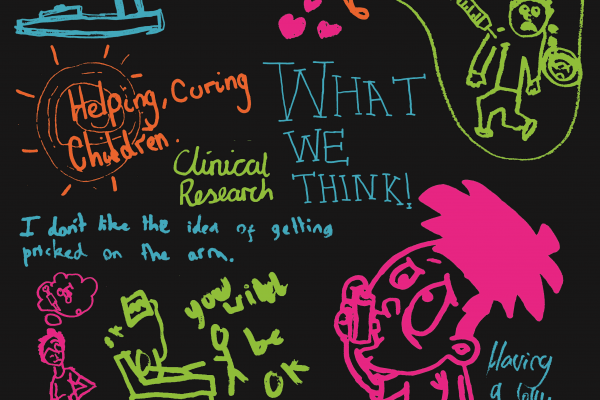Children and clinical research: ethical issues
Report
Published 14/05/2015
What’s this report about?
Health research with children and young people
This report is about how best to carry out health research – research that tries to find better ways of keeping children and young people healthy, as well as looking after them when they are ill or have a disability. There are many different kinds of research that children and young people might be asked to take part in. Some studies involve children who are healthy, and others involve children who have an illness or disability.
Why do research with children and young people?
Researchers can’t just carry out this research with adults, because children are different from adults. Their bodies respond to treatments differently because they are still growing. They may also have different opinions about what matters to them.
Does research help children and young people who take part?
Researchers usually have some evidence that what they are doing may help children or young people with a particular condition. However, they need to collect information from lots of people, so they can be sure that they are providing care in the best way. This may or may not help children or young people who take part in the research. However, it may help other children in the future. Sometimes research may show that the treatment does not work or is not necessary. This information is just as important.
For example, researchers might:
- ask children and young people about their daily lives, such as how much they exercise, what they eat, and whether they smoke
- find out how health conditions, such as asthma, affect children's lives
- find out whether a new treatment, such as a new medicine or vaccine, works better for children and young people than existing treatments
- invite children and young people to give their opinions about health services they have used, and how they could be improved.

Burdens are things about research that people taking part in might find unpleasant, or boring.
"Extra visits to a hospital or having to do diary notes because I think I've got a lot going on and I just wouldn't find the time for that as well. Things like blood tests and and needles - I'm not scared of them or anything - they just make me uncomfortable. I just wouldn't want these."
What’s the problem?
Adults often worry about the idea of asking children and young people to take part in research. This is because the main aim of research is to find out how to help people in the future, rather than to help the person taking part. Sometimes, research studies may involve burdens or risks.
Is research important?
If children and young people are not allowed to take part in research, researchers won’t be able to find out how to improve their healthcare. It will also be difficult to find out the best ways of helping them to live healthy lives.
If children and young people are given the option of taking part, this will help doctors and other people providing healthcare to give them the most up-to-date care, just as they do for adults. Children and young people told us that they believe research is important, and that they should choose if they want to be involved. Many said they would take part if given the choice, because they wanted to help other children, or thought it might be interesting.
Ethical questions
Because research is important, we need to find ways of making sure children and young people are given the option of taking part in it. We also need to make sure that they are protected from harm. This report looks at ethical ways of involving children and young people in research.
Ethics is about deciding what is the right things to do.
Often there isn't an easy answer because there are good things and bad things about all the options. Our report suggests ways of thinking about how to decide. But it can't give all the answers to every difficult questions.
We think that:
- Good research is well-designed research that asks important questions and is carried out ethically.
- Good research with children and young people is essential and must happen. It should become part of routine care in hospitals and in other places where children are looked after. Researchers shouldn’t feel they are doing anything wrong when they ask children and young people to take part in research.
- Research must be carried out with children and young people, not on them. If they choose to take part, they must be listened to, and feel that they are actively involved. From a young age, most children want to have a say in how they live their lives. This must apply to research too.

Share